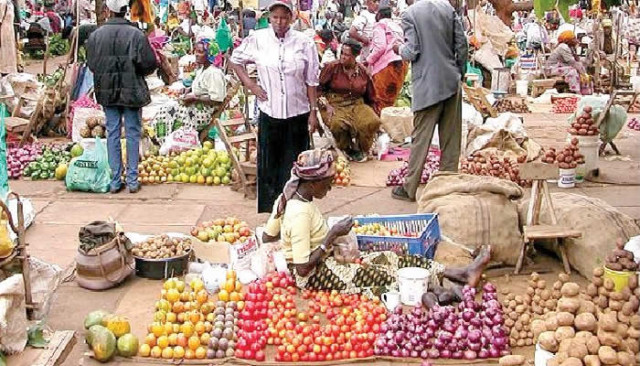Business owners in the Federal Capital Territory have voiced their worries about the escalating costs associated with running their ventures.
They have reported a decline in customer patronage, as many residents are unable to afford goods and services as they once did.
Speaking in Abuja on Wednesday, the entrepreneurs described the high cost of doing business as a significant challenge in their lives.
They pointed to rising transportation costs, living expenses, inflation, and diminished purchasing power as key obstacles impacting their operations.
At Apo Fish Market, Mrs. Agnes Nwafor, a foodstuff trader, noted that the current economic climate has affected the usual weekend activity.
"Customers who previously bought in bulk from my shop are no longer doing so. Instead, they purchase items one at a time based on their immediate needs," she remarked.
She also mentioned that many potential buyers ask about prices but often leave without making a purchase.
A vegetable seller at the same market, Sani Abdul, shared that he has taken to selling his products at prices that are nearly below his cost to attract more buyers.
He expressed concern that many of his customers now prefer to buy on credit, repaying in installments.
“With the significant drop in customer traffic, one would hardly think it’s the weekend,” he said.
He disclosed that while other vendors sell baskets of tomatoes for N10,000 to N12,000, he offers them at N9,500 to draw in business.
He expressed understanding for customers wanting lower prices or to purchase on credit.
Obong, who runs a restaurant in the Gudu market area, echoed the concerns about high operating costs and plummeting sales, stating, “It feels like our sales continue to decline daily. We struggle to make sales primarily because product costs are sky-high.” She remarked that buying certain food items now feels like an expensive luxury, and prices aren't dropping as they typically would due to seasonal changes.
A fabric store owner, Chinedu Umeh, stated that prevailing conditions were harming both his wholesale and retail operations. He expressed frustration with transportation costs, urging the government to address this issue.
Umeh recommended tax breaks for small businesses and improved access to credit to alleviate the pressure of declining sales. “Small businesses are vital to the economy, but we are struggling. The government needs to listen and provide support,” he urged.
Owoicho Ameh, who operates a farm along the airport road, lamented the challenges posed by soaring costs of chicken feed, power supply, and transportation. “Business is no longer as it used to be.
We contend with high production costs which reflect in the prices of our products, making them less affordable for consumers,” he explained.
Ameh recounted instances of selling his chickens at a loss just to generate cash flow for family needs.
He warned that if the current situation persists, he risks going out of business and facing unemployment.
He emphasized the need for the government to take swift action to enhance the economic environment, improve infrastructure, and restore public confidence.
"If this issue is not addressed urgently, we may see a rise in suicide rates and an increase in unemployment," he cautioned.




















